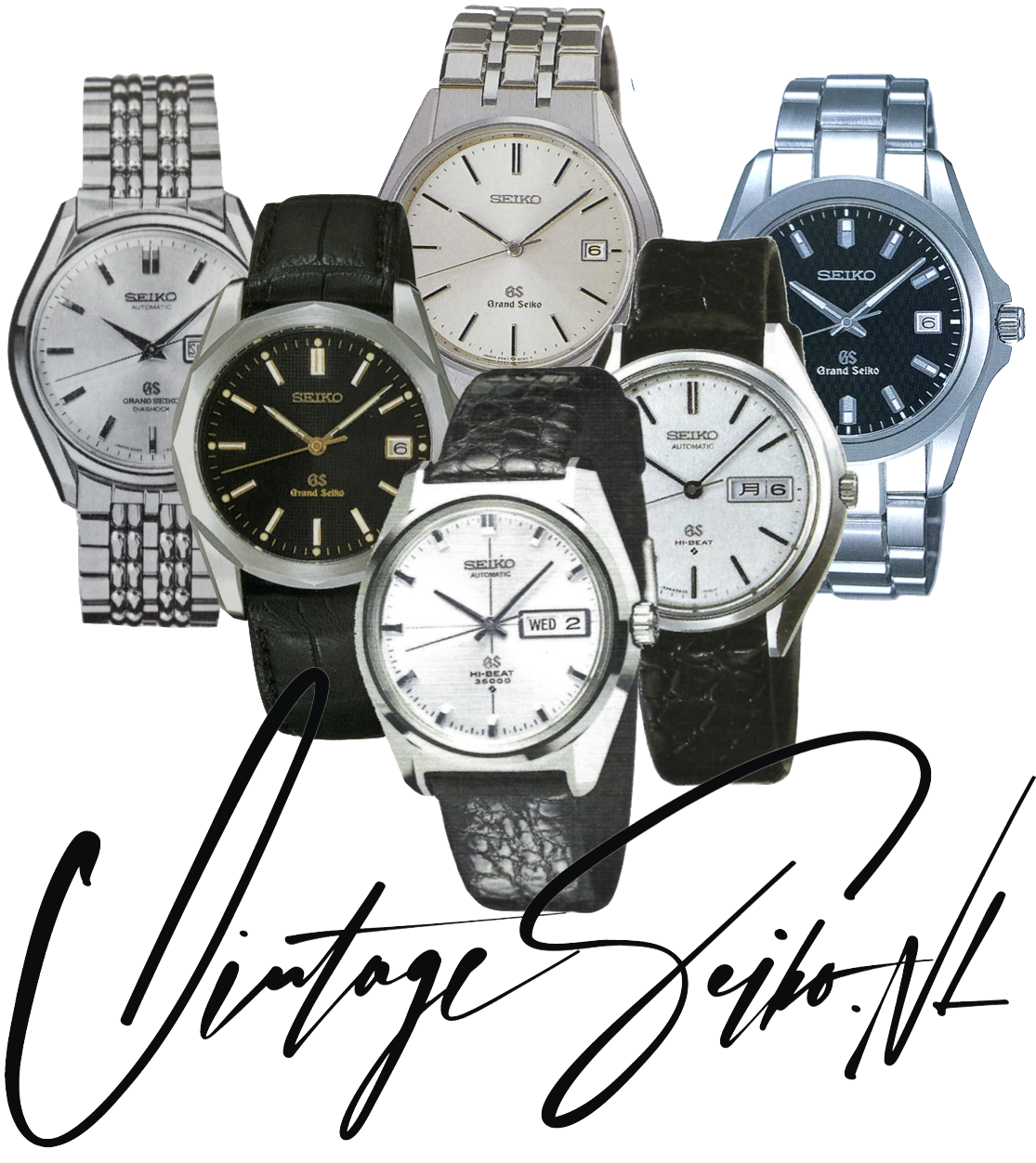
Seiko Grand Quartz 9943-8010 brown linen with patina (Sold)
€ 260.00
Sold out
Here it is depicted with its silver sunburst twin (pun intended), they just look great together !
Twin Quartz craze
When quartz was well established, at the end of the Seventies, the Seiko 1978 JDM catalogue showed the twin quartz caliber for the first time, however there were (eventually) at least three different design technologies behind the Seiko twin quartz models.
While quartz based watches are extremely accurate compared to mechanical watches they are still not perfect. One of the main reasons for the inaccuracy in a quartz model is because as the temperature changes the oscillation of the quartz crystal varies slightly. This change in oscillation will cause the slight drift in timing. To compensate for these changes quartz watches will employ some kind of temperature compensation.
The five calibers
In all five different calibre series were introduced in less than two and a half years, they were used in the Superior, Grand, King and Quartz line ups. The 99 series was first released in August 1978 (specifically the 9983A), the 92 series released in December 1978, closely followed by the 97 series released in October 1979 (9722A, 9723A). Just under a year later the 96 series was released in September 1980 as caliber 9641A and 9642, the latter in the inconspicuous Seiko Quartz - a true wolf in sheep?s clothes. Hot on its heels was the 94 series released in November of 1980 (9441A).
Grand Quartz 99xx
In 1978 caliber 99xx, was first produced. With an accuracy rated at 10spy - the same as today's Grand Seiko cal. 9F - the 9940 (and the 9256) is shown for the first time in the JDM 1979 V2 catalogue, on page 6 priced at 75,000 Yen. In todays money that would be some 940 dollars. It is probable that the entire production of the Grand Quartz line just spans a decade, 1975-1985. For caliber 9940/9943 however just 6 years. All of these watches have the strong lines and angles typical of the Seiko productions of the Seventies. The dial has the indices and the Seiko logo both applied and at six o'clock there is the "double honeycomb" logo, indicating the presence of a "twin quartz" caliber inside.
A feature of this particular caliber - you guessed it - is the total absence of any day and date indication; maybe this is why watches running the 9940 are quite scarce, watches made with the 9943 (day/date) are more common. Remember, during the entire production run we have only two 9940 models, but thirteen with the 9943 and two with the date-only 9942.
Another feature is the way that the 99 series twin quartz models work. These models use one of the crystals for the timing accuracy and the second crystal is used to detect the temperature. These two values are then combined in a processor to calculate the correct timing offset. This method allowed extremely accurate adjustments with all the models achieving the following yearly variations, 9980A and 9983A +-5 seconds (Superior), 9940A 9942A and 9943A +-10 seconds (Grand Quartz) and the 9920A 9921A and 9923A +-20 seconds (inc. King Quartz).






